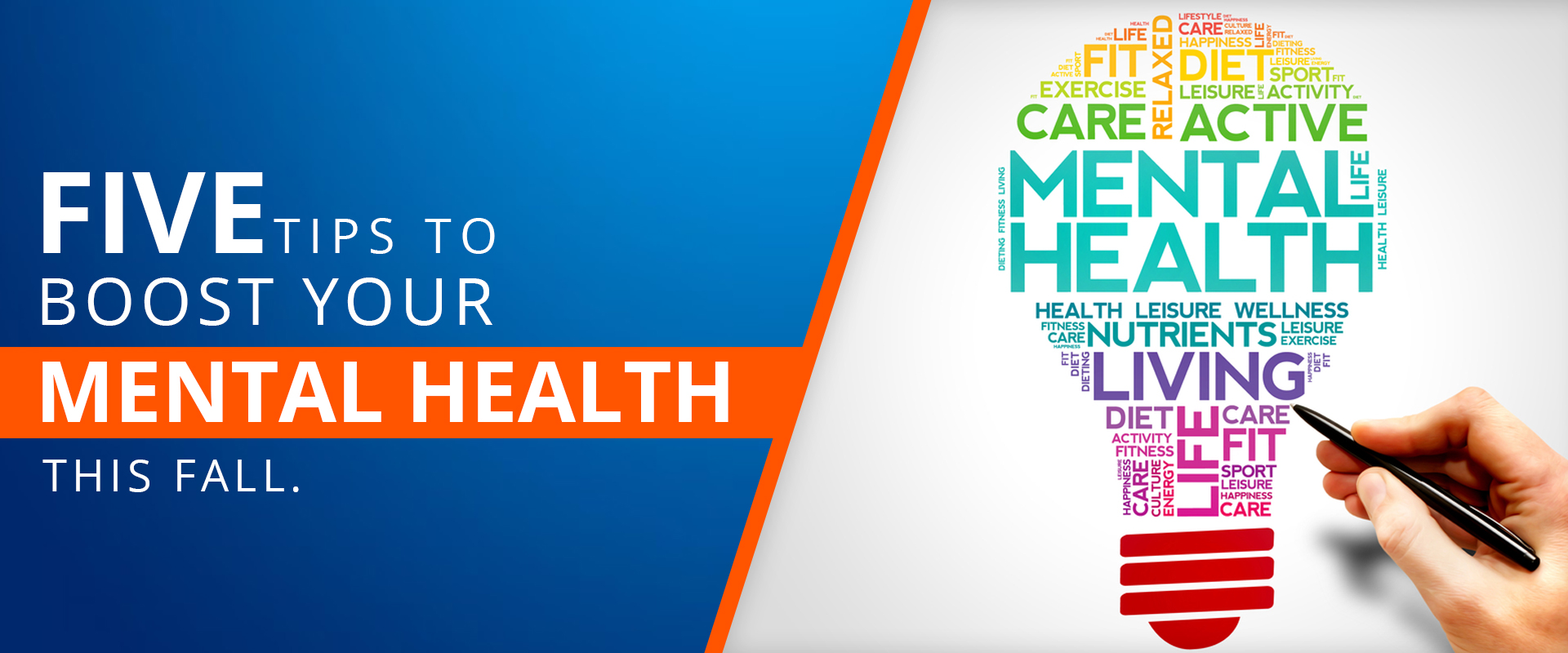
As we enter the fall season with the coronavirus pandemic looming overhead, it is important for us to take better care of our physical health to boost our immunity and resistance to the disease. It is also especially important that we take steps to maintain our emotional and mental health in addition to physical distancing.
The physical distancing we have been enduring as a result of the pandemic has exacerbated the need for mental health support. When facing a mental health disorder such as anxiety or depression, there are many small changes and lifestyle choices that can improve all our emotional and mental health, in addition to psychological therapies and medication for diagnosed mental health disorders.
The World Health Organization (WHO) predicted that one in four people in the world would be affected by a mental health disorder at some point in their life and that the magnitude of the mental health burden is not matched by the size and effectiveness of the supports. These grim statistics were pronounced prior to the coronavirus pandemic. WHO has also designated October 10, 2020, as mental health day. Let’s use this as a reminder to protect, and preserve our mental health.
Good mental health is essential to our well-being and can have a great impact on how you think, deal with situations, behave with others or make decisions. It determines the quality of your life. The following five effective lifestyle changes that can help you to improve your mental health.
1. Optimum Nutrition
Our diet plays an important role in keeping us mentally well. Research shows that our diet can affect our mental health, in both a good way and a bad way. It has been proven in various studies that what we eat will impact how we feel. Our nutrition can affect our memory, focus, mood, and activeness, as food contain numerous nutrients that affect how hormones are released and how they fuel our bodies. Nutrition also impacts our stamina and ability to stay mentally resilient. For example, you may feel weak or tired if you miss meals or get dehydrated.
2. Exercise daily
It has been proven that daily exercise can have a positive impact on your mental health. By taking a daily walk, or other physical activity you can minimize the chances of depression now, and reduce the negative impact as you age.
Your exercise routine can be as simple as setting aside at least 10 minutes to do morning stretches and getting your body in motion. This could include stair climbing, stretching, or taking your dog for a walk. Some studies show that a workout routine that you can do daily at home tend to be the most consistent. Now that we are staying home due to the pandemic it is a great time to create your own personalized workout routine. Consider combining several different exercise formats to your routine to maintain interest and workout various muscles.
3. Get Adequate sleep
In this modern era, many people forego sleep due to busy schedules, some work late at night burning the midnight oil to keep abreast or get ahead, cheating their body from adequate sleep. Thus, sleep deprivation is becoming more widespread, which is a risk to our mental health. There are several cases where depression and anxiety have been controlled with more sleep.
You can commit to getting enough sleep by going to bed on time and getting up at a consistent time that gives you at least 6 to 7 hours of sleep. Sleep is essential to heal, restore, and remove dead cells from our brains.
4. Develop a Spiritual Practice
There are many studies that show people who have a daily spiritual practice are happier, healthier, more successful and have better mental health and resilience.
A spiritual practice may be a way to connect with your purpose, passion, God, your vision, mission, core values, beliefs, faith, or life goals. It is any practice that gets you to connect with your higher consciousness. It can also be a religious practice, study, devotion, or prayer.
A key benefit of a spiritual practice is that it builds your hope, trust and faith, reducing how much your worry and stress about the challenges you face in daily life. Studies show that those with a spiritual practice have more optimism and are less stressed and anxious.
5. Emotional Cleanse
Did you know that emotional health is a gateway to mental resilience? Often we hold unto pent up emotions about people and things and seldom take time to purge our emotions.
We cleanse our faces, skins, and even our colons but seldom pay attention to the emotions that weigh on our minds. Since emotions colour our moments and lives, it makes sense to clean out useless emotions that tie us to things and people who no longer add value to our lives.
An emotional cleanse exercise lets you become conscious of the range of emotions you face in a given day and shares some key ways to either switch the emotions to a more positive one or dismiss it. It allows you to detox from the negative emotional stresses that may cause anxiousness and sleepless nights.
I love this free 30 day emotional cleanse because it offers some clear steps to follow and gives a range of negative emotions to release, as well as positive alternatives to gain emotional resilience over a 30 day period.
How To Select Professional Help
If you are unable to manage and improve your emotional or mental health on your own, it is important to seek professional help. Remember when your kitchen drain gets plugged you call a plumber. Think of professional mental help as support as unplugging a clogged mind.
You can seek mental health support from specialists like a counsellor, therapist or mental health experts to help you regain your mental health and function. Your choice of professional help will be based on your needs. If you need to explore past childhood trauma then you should seek out mental health experts, as they are best trained in this area.
Sometimes you may not be certain where to turn or whom to see. If you are looking to gain clarity, set goals, or seek accountability to take specific actions, then you would seek out a life or wellness coach to support you. Most certified coaches are trained to assess if your needs are best met by mental health experts and can refer you.
The 2020 Global Workplace Wellness Summit will focus on mental health for an entire day. Get a free pass for the summit and join the experts on November 11, 2020, starting with a keynote address by Dr David Rabin of the Apollo neuroscience sharing tips and strategies to boost mental health and wellness at work and in life.

